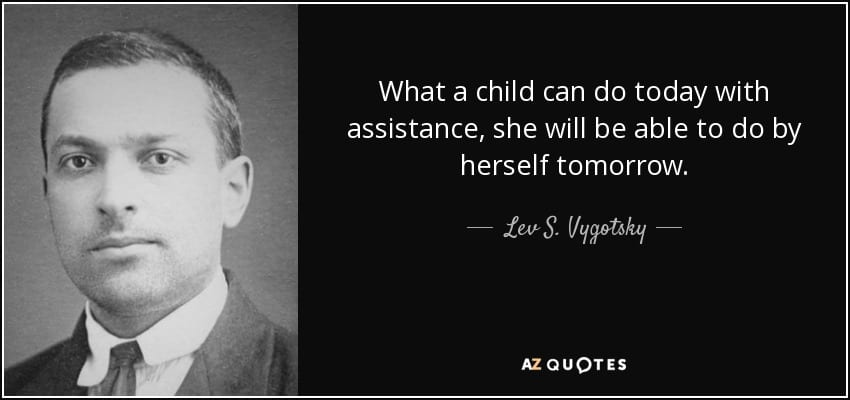Who is Lev Vygotsky, and what is the Vygotskian Sociocognitive Theory?
Lev Vygotsky was a Soviet psychologist in the 1920-30’s. He is best known for his research in educational psychology with a sociocultural/cognitive theory. Vygotsky’s theory suggested that a child’s cognitive development is dependent on social interaction and their cultural environment in forming their own view of the world. He emphasized the importance of language acquisition in a child’s life, how communication impacts a child’s ability to learn from others.
What is the ZPD?
A major element in Vygotsky’s sociocognitive theory is the zone of proximal development (ZPD), which he describes as the difference between a child’s actual development level (as determined through solving/performing tasks by themselves) and the level of potential development (as determined through solving the most difficult tasks with assistance or guidance). Vygotsky implies that a child learns little from completing tasks they can do with ease, and only makes progress and learns from tasks that challenge them. The ZPD is the potential level of ability the child has to solve difficult tasks with assistance.
How does the ZPD relate to teaching?
As teachers, we very much adhere to Vygotsky’s theory with the ZPD. We are the assistance given to a child when they are performing challenging tasks which enable them to learn and grow. Teachers create the optimal environment and culture in which the child should be able to learn, be challenged, and overcome difficulties with help from peers and teachers. Teachers essentially facilitate the zone of proximal development.
